Pedigree Forge - Features to Enhance Your Genealogical Research
Customisable Professional Family Tree Charts
Create stunning, traditional family tree charts with options like drop-line pedigree, ancestors, and birth briefs. Tailor your charts to meet your specific needs, from simple family layouts to detailed multi-generational pedigrees.
User Benefit: Impress your clients, colleagues, or family members with beautifully designed, professional-grade family trees that visually communicate the intricate details of your research.


Professional Reporting Capabilities
Generate in-depth reports that not only include ancestor details but also embedded charts, timelines, source citations, and transcripts. With options to include indexes and references, you can create comprehensive, polished reports for clients or personal projects.
User Benefit: Produce professional, referenced reports that showcase your research in an organised, visually appealing format—perfect for sharing or publishing.
Embedded Web Browser with Microsoft Edge's WebView2
Browse the web seamlessly from within Pedigree Forge using an embedded web browser powered by Microsoft's WebView2. Research genealogical records, archives, and online sources without ever leaving the software.
User Benefit: Save time by keeping all your research tools in one place. No need to switch between applications—access online sources directly from within Pedigree Forge.
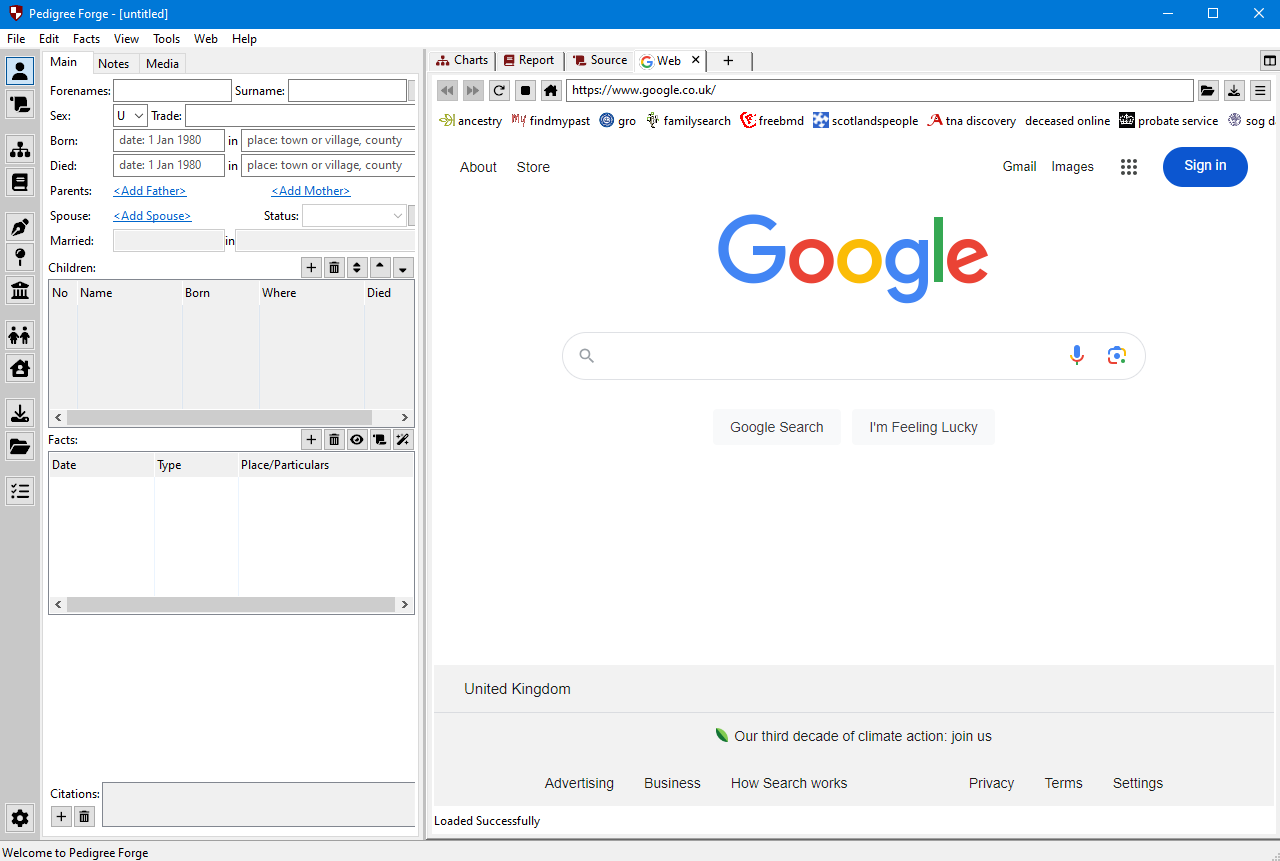
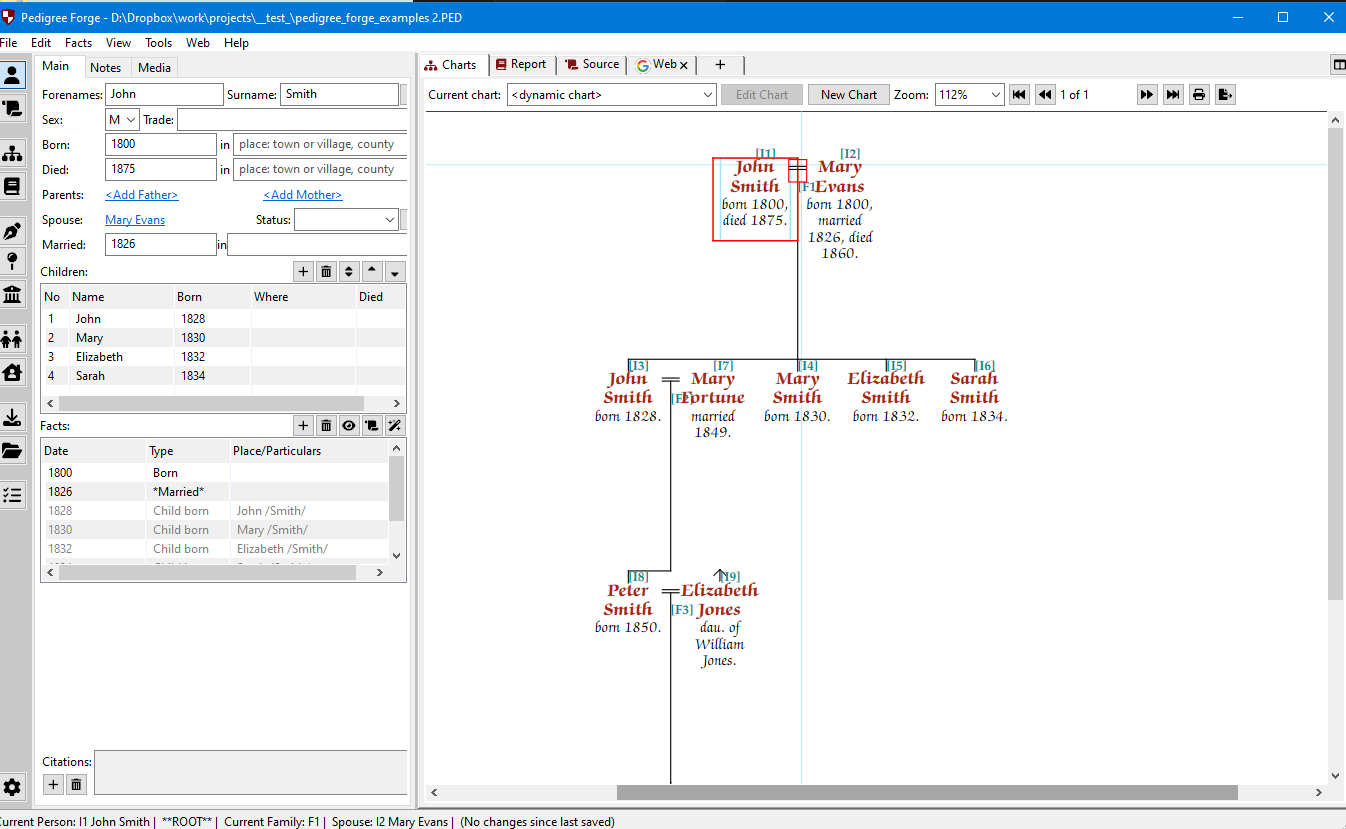
Real-Time Data Entry and Chart Updates
Easily enter family history information such as events, children, and life details. See changes reflected visually in real-time within your charts, ensuring your family trees are always up to date.
User Benefit: Experience a smoother workflow with real-time updates, allowing you to focus on research while ensuring your family tree remains accurate and current.
Built-In Word Processor
No need for external applications—Pedigree Forge includes a fully integrated word processor, making it easy to draft reports, write detailed family histories, or document findings all in one place.
User Benefit: Streamline your workflow with the convenience of an integrated word processor for all your genealogical writing needs.
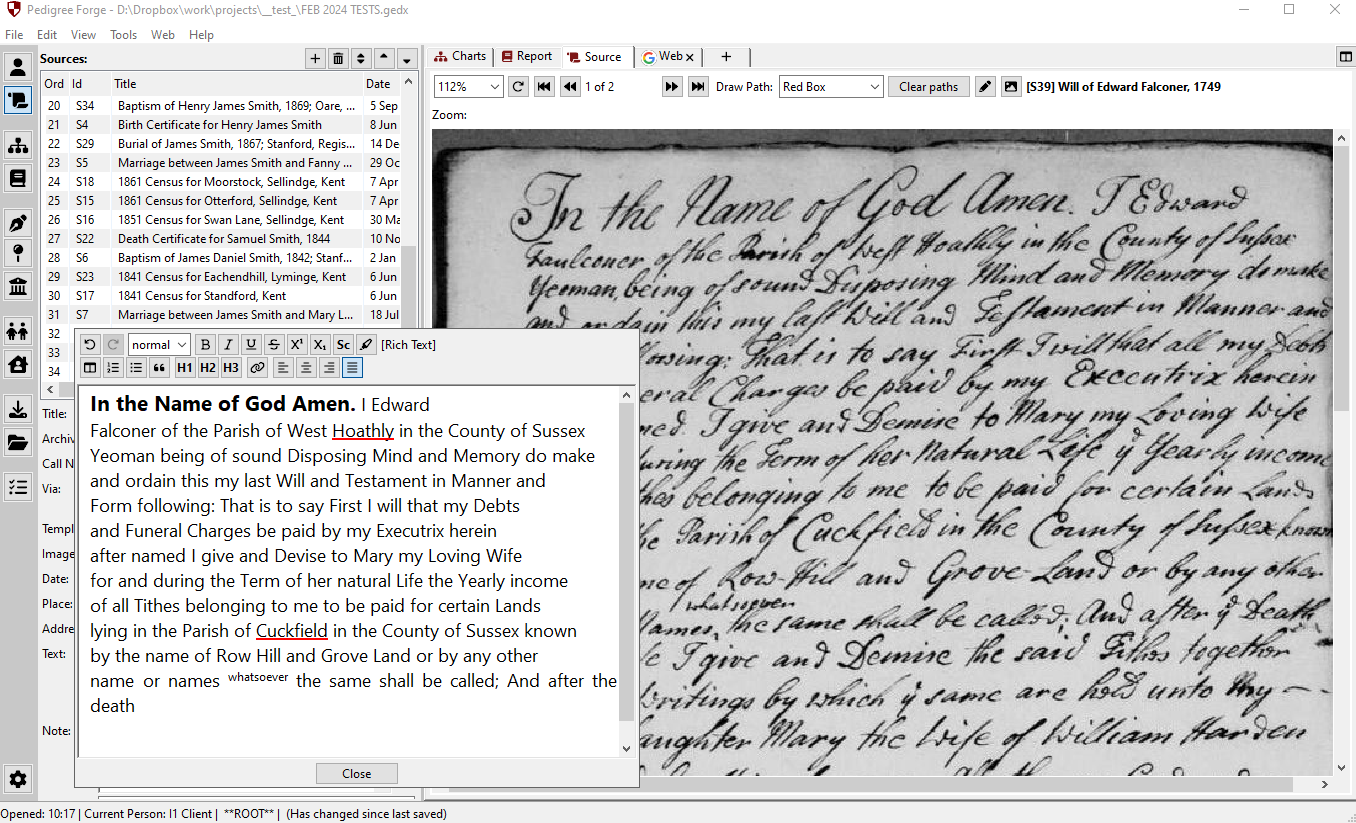
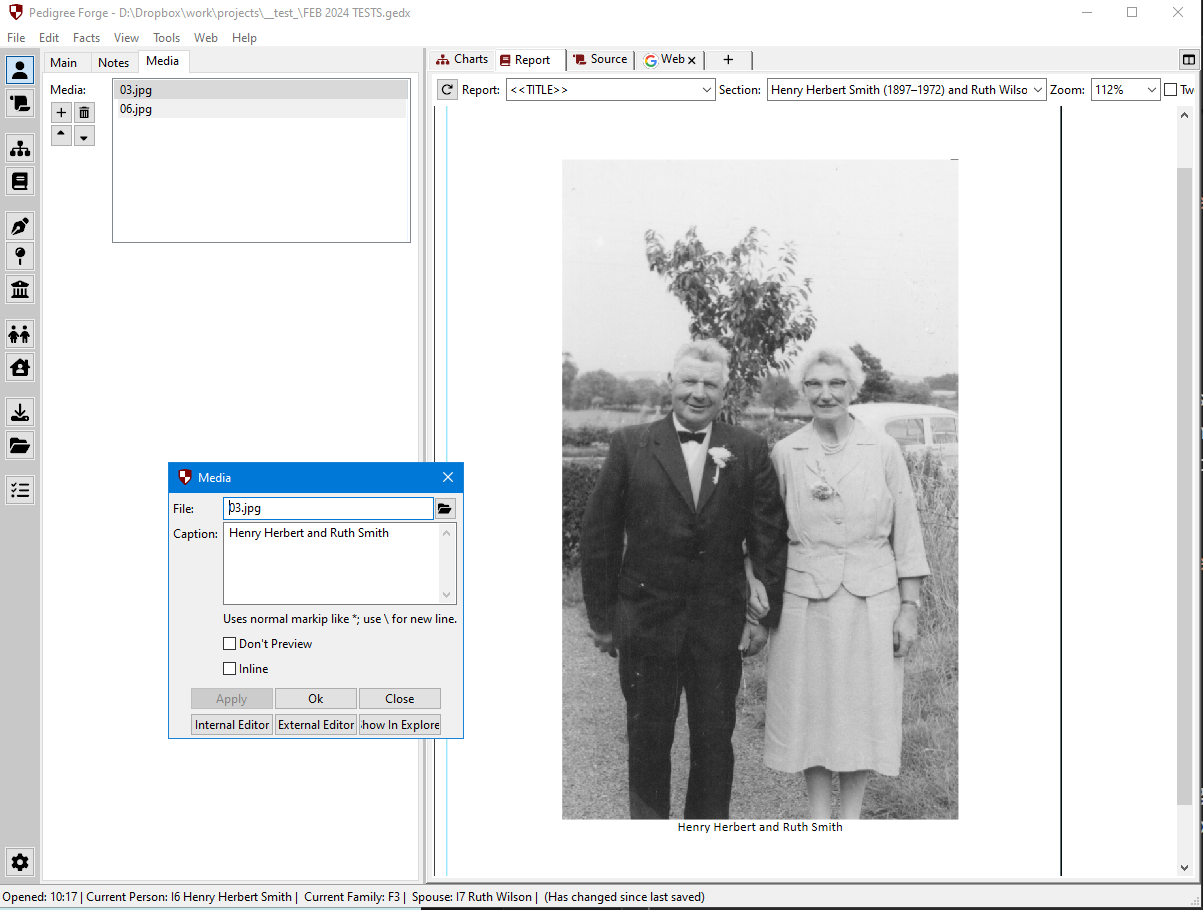
Link Images to Sources and People
Attach images—such as photos, scans of documents, or historical records—directly to people and sources in your family tree, providing visual evidence for your research.
User Benefit: Bring your family history to life with rich visual content that enhances the documentation and storytelling of your ancestors’ lives.
Audit Reports and Logic Checks
Run audit reports to check for inconsistencies, missing information, or logical errors within your database. This feature ensures that your data remains clean and accurate.
User Benefit: Gain confidence in the quality of your research by running regular audits to catch any mistakes or missing details, helping maintain professional standards.
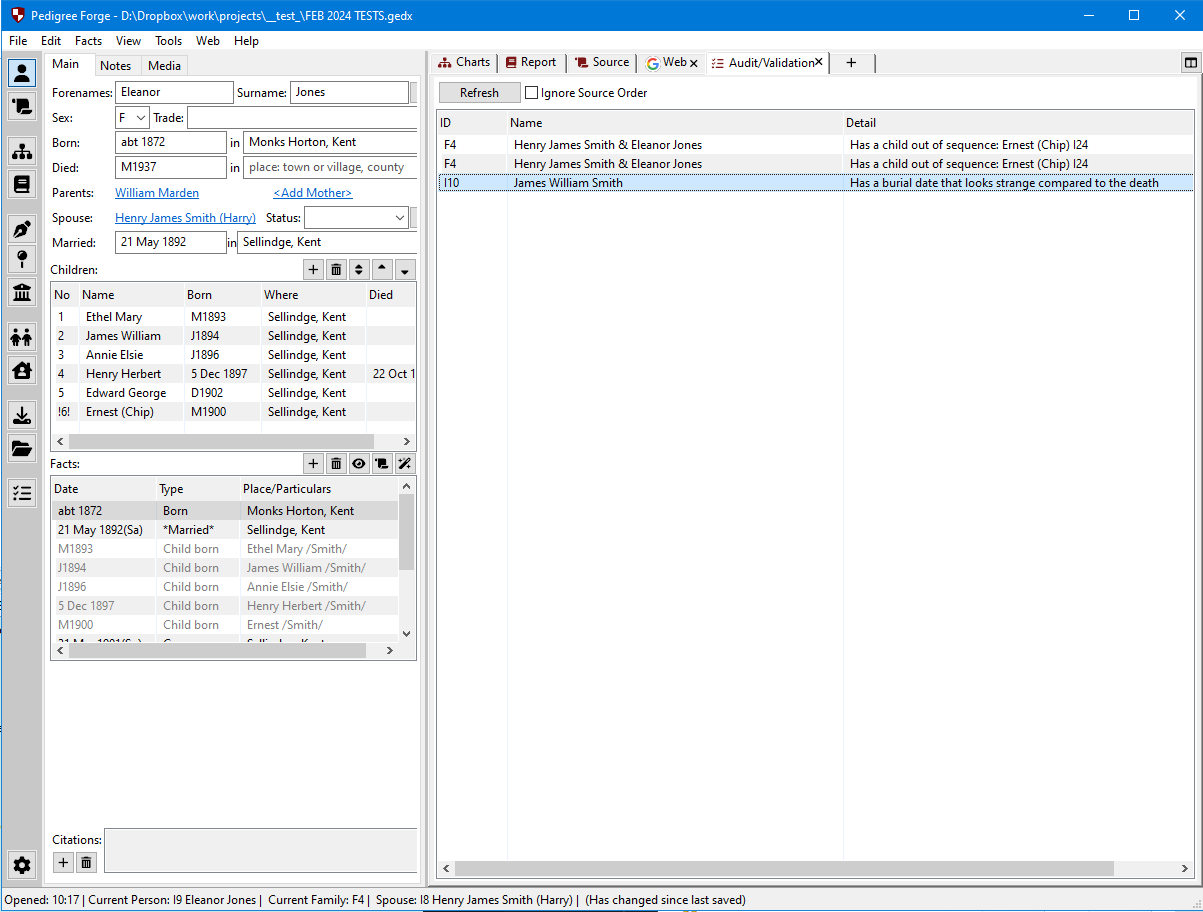
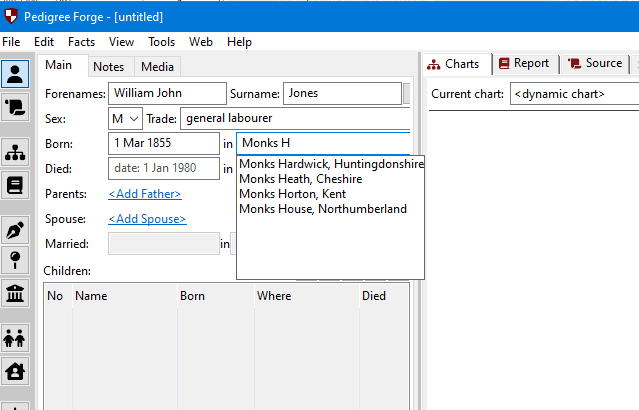
Auto-Completion for British Place Names, Occupations, and Names
Save time on data entry with auto-completion for various fields, including British place names, occupations, and common names, ensuring consistency and accuracy.
User Benefit: Increase efficiency by reducing manual entry errors, allowing you to focus on the bigger picture of your family history research.
Source Templates for British Genealogical Records
Use built-in templates for common British genealogical sources, such as censuses, General Register Office (GRO) certificates, and parish registers. These templates simplify the process of adding new records and ensure consistent formatting.
User Benefit: Simplify the recording of British records with ready-made templates, ensuring all important details are captured accurately and consistently.
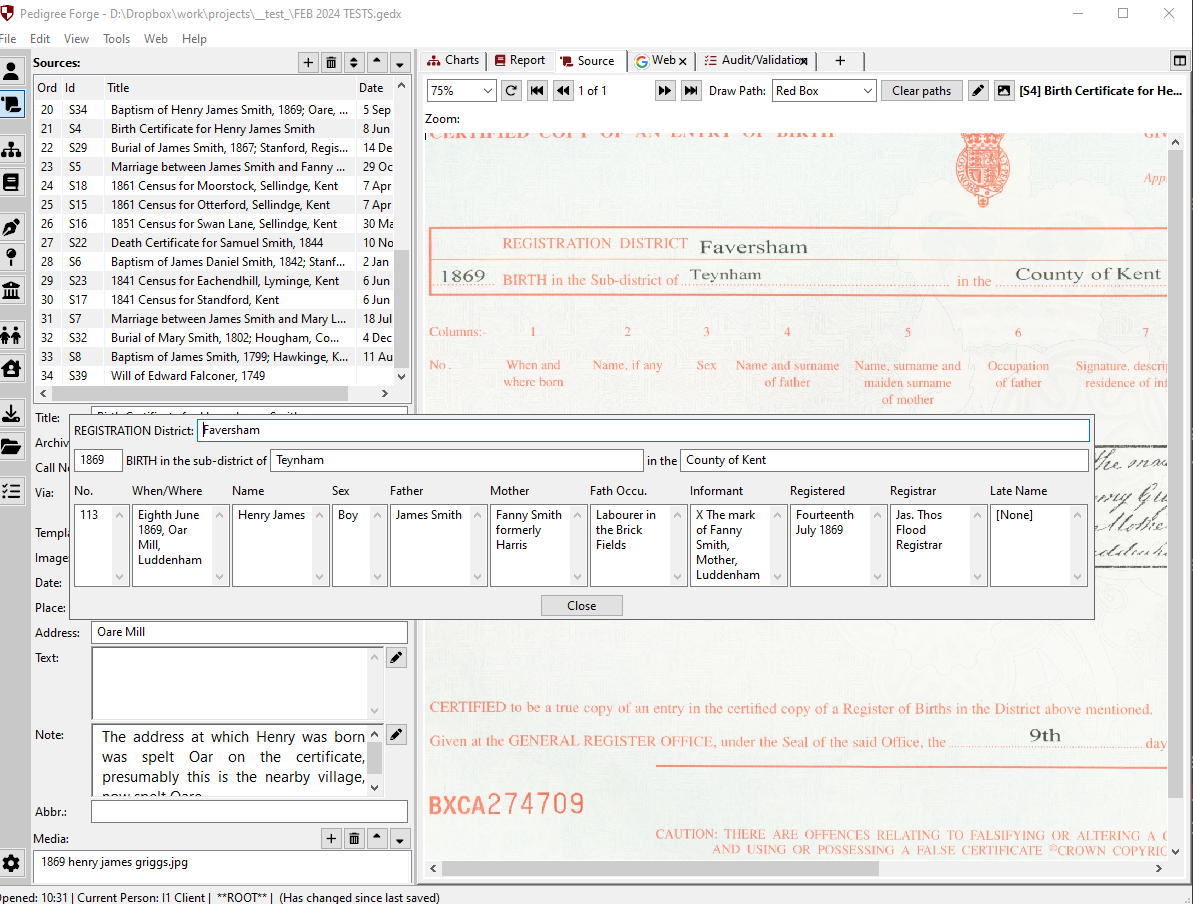
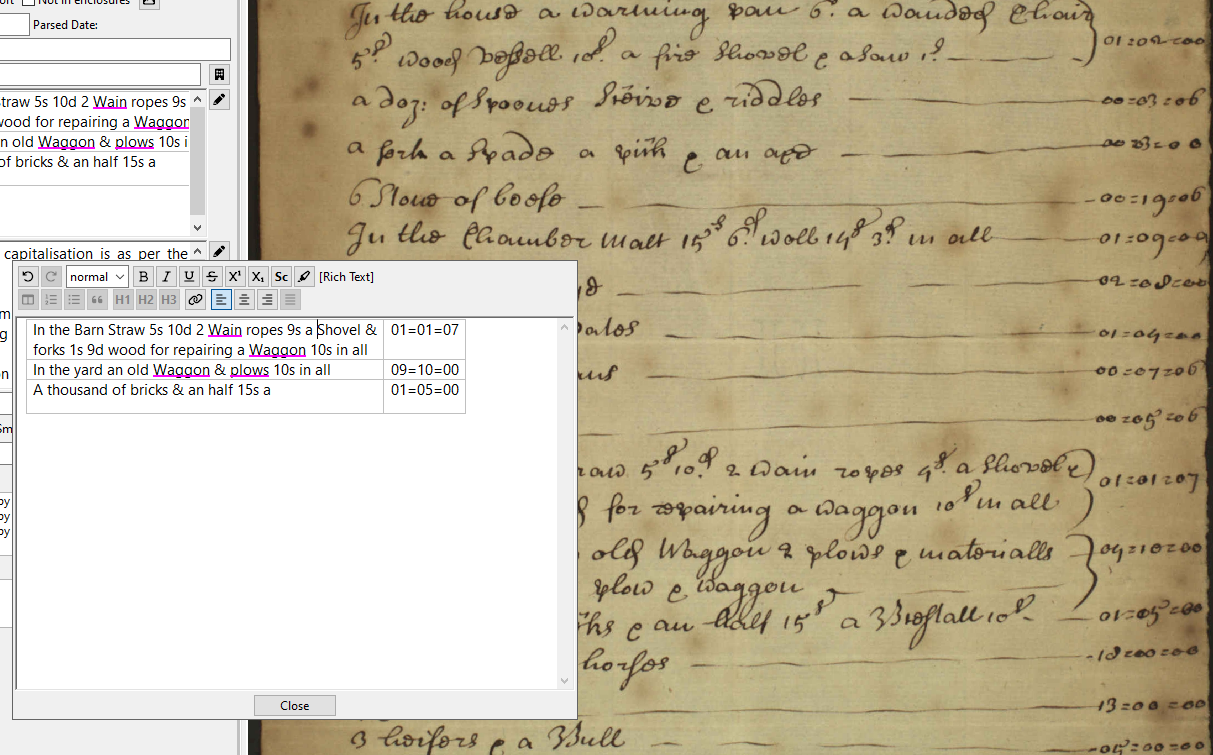
Built-In GB English Spell Checker
Pedigree Forge includes a built-in GB English spell checker to ensure your written content is error-free, tailored specifically to British spelling conventions. However, we recognise that genealogists often have to transcribe historical documents that contain misspellings or archaic spellings. To help with this, Pedigree Forge allows you to flag words to be ignored during spell checks without adding them to the dictionary. These flagged words will be underlined in magenta, clearly indicating that they were transcribed exactly as found in the original document.
User Benefit: Ensure your transcription work is accurate while maintaining a professional standard for modern text. With the magenta underline feature, you can easily distinguish transcribed spellings from errors, making your reports both faithful to historical sources and polished for modern readers.
GEDCOM File Import and Export
Easily import or export GEDCOM files, making it simple to transfer your data from other family tree software or share it with collaborators.
User Benefit: Integrate your data with other genealogy software or share your findings with family or clients using the de facto GEDCOM format.
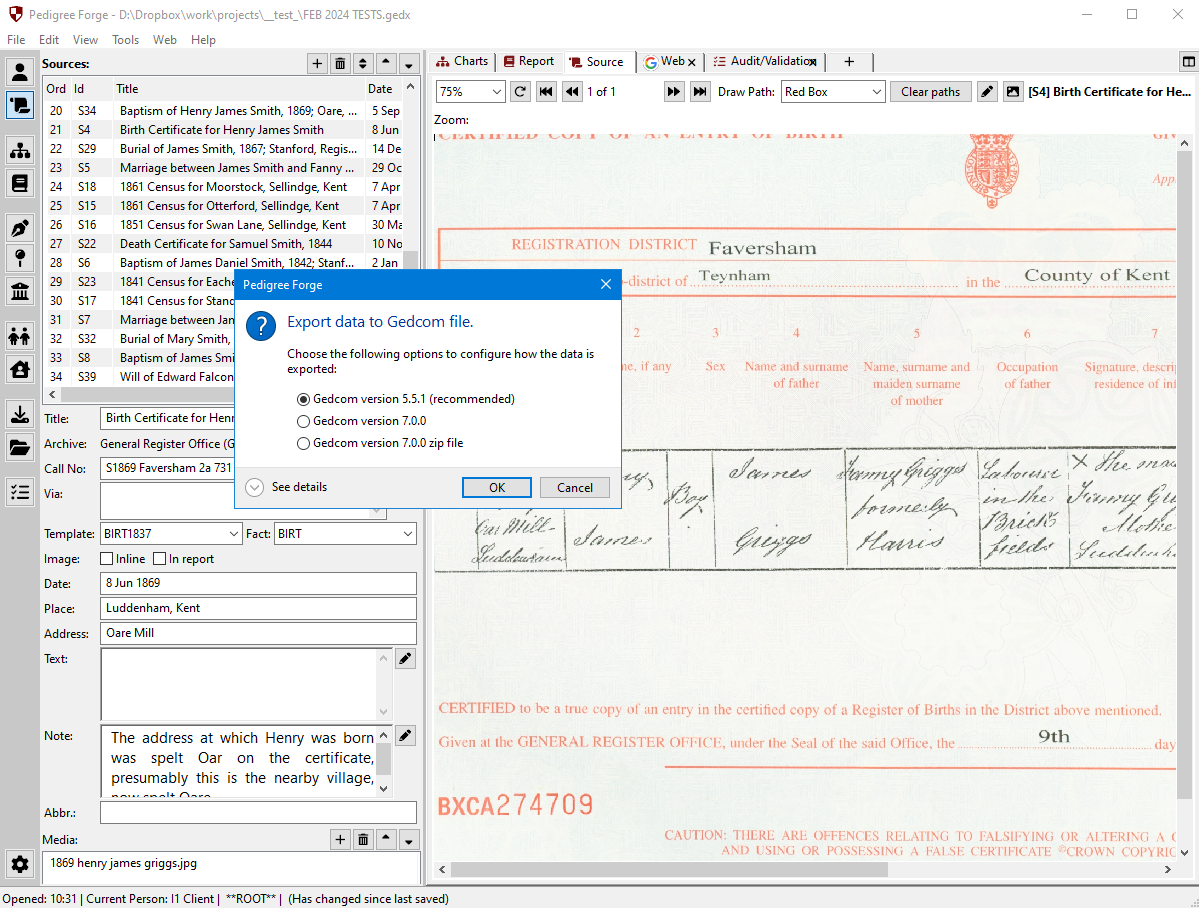
And much, much more, with new features too!
Take Your Genealogy Research to the Next Level
Pedigree Forge is designed to make genealogy easier, more accurate, and more enjoyable. Whether you're creating family trees, drafting reports, or verifying data, the software’s range of powerful features ensures your research is always presented at its best. Explore the full potential of your family history today with Pedigree Forge.
Sign up for updates and be the first to know when Pedigree Forge is available for download!
Technical Information
For those of you who would like more technical information on Pedigree Forge...
System Requirements
Pedigree Forge requires Windows 10 (updated to at least version 1903) or Windows 11. It is a traditional desktop application written in c++ and uses the Win32 API. The only version supported is 64-bit.
Pedigree Forge has no other external dependencies beyond the Win32 API, and can be used just by running the program. However, an installer program is also available that will allow it to be properly setup in the system. This has the benefit of adding links to the desktop and start menu, as well as registering the ".ped" and ".pedb" files to be opened with Pedigree Forge.
Data model and file format
Pedigree Forge can use two different data models: flat files or databases.
Flat files
Pedigree Forge uses files with the extension ".ped", for "pedigree". Internally a ".ped" file has the same structure as a modern GEDCOM file (usually with the extension ".ged"), but makes use of many extensions. Theoretically, Pedigree Forge should open a relatively modern GEDCOM file, however some data might be lost depending on what extensions the input GEDCOM file uses. This is not recommended however, and you are advised to "import" a GEDCOM file.
There are advantages and disadvantages to this approach, but the design decision means that if (potentially many years down the line) someone only had access to a Pedigree Forge file, but not the program to open it, then as the crucial information conforms to version 5.5.1 of the GEDCOM standard, there is still a good chance the file could be opened with another product, the key data being maintained.
Safe guards are in place to prevent corruption of the .ped file when saving, the file being first saved to a temporary path, before being atomically renamed to the original. It is still recommended that users make regular backups, which can be done from within the program.
Database mode
Pedigree Forge can also work in database mode, connected to an SQLite database. In this mode, changes are written back to the database as soon as they are made, and there is no need to save changes.
Amount of data that can be handled
The program has been regularly used with files containing a few thousand people and several hundred sources, without any slow down in performance.
It has been stress tested with tens files containing tens and hundreds of thousands of individuals, and some containing over a million. It does start to feel a little bit "laggy" handling files with over a couple of hundred thousand people which have realistic data, like source citations and facts. Loading files containing a two hundred thousand people is a couple of second.
Export File Formats
Charts can be exported as PDFs, SVGs, PNGs, JPGs and BMPs. There is also an option to create a HTML chart, which can speak, as a possible future extension to make an accessible type of family chart for visually impaired users. The most reliable type of export is as a PDF, and is what is recommended.
Reports can be exported as PDFs or HTML.


